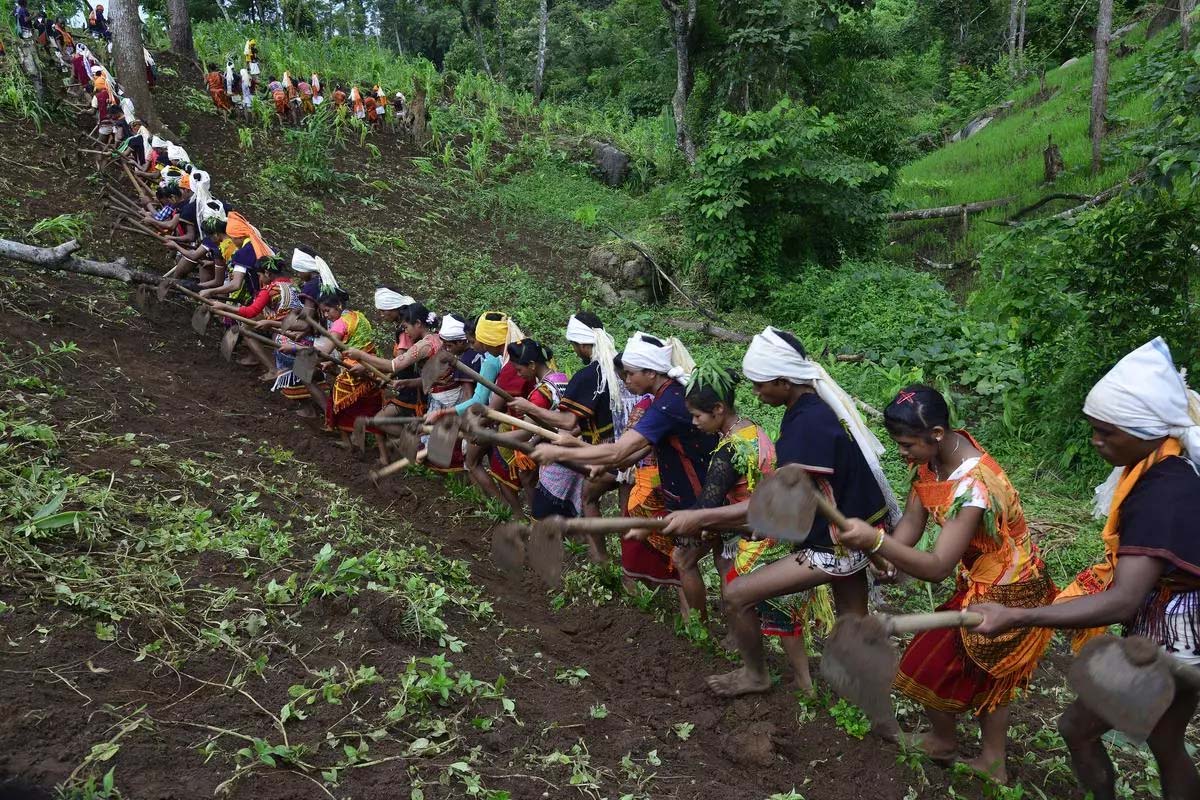The Nagaland Community Conserved Area Forum (NCCAF) and Kezekevi Thehouba (KTB) have come to oppose the recently passed of the amended Forest (Conservation) Act 2023. The Act, which was passed in the Lok Sabha and Rajya Sabha in late July, has ignited a wave of concerns and apprehensions amongst indigenous tribal communities in Nagaland prompting the organisations to release the statements, the Morunga Express reported from Dimapur, Nagaland on Thursday.
In press releases released in August, NCCAF and KTB expresed their collective dissent and asserted that the Act poses a grim challenge to the land and forest rights of indigenous communities. They assert that the forest and land have been safeguarded by these communities for generations and thus the new Act’s vague definitions and stipulations are a definite cause of concern for the people, as pointed out in a joint press release.
According to the KTB, Nagaland has witnessed widespread voluntary conservation efforts by local communities. Over 407 Community Conserved Areas have been established, serving as a testament to the community’s deep-rooted commitment to preserving the rich biodiversity. However, the new Act introduces uncertainty that threatens traditional land ownership that has been listed for generations and decades.
What are these groups’ concerns?
The central concern for the groups protesting in Nagaland is the Act’s scope, which allows provision for certain sections of forest land to be indiscriminately allocated for national projects. Nagaland falls directly under this ambit, fears arise that the Act could potentially undermine the diligent environmental preservation initiatives undertaken by indigenous communities.
According to the KTB, the Act enables corporate giants to exploit forests for profit, hurting tribal interests and their identity. The group urged leaders to reconsider. One of the reasons is the purported cultivation of Palm Oil. The mass Palm Oil cultivation in Nagaland harms soil, water, biodiversity, and ecosystems. One Palm oil plant requires over 250 litres of water daily, leading to devastating effects.
The KTB argues that the Act’s implications extend beyond environmental considerations. It raises questions about social, cultural, and historical identity, thereby stoking concerns about the democratic process. Village councils, essential components of local decision-making, could find their voices silenced in this division of power and the very essence of indigenous traditions endangered is a threat looking over gravely.
Citing that this amendment affects all the people of north-east not just the Naga people, the KTB further emphasised the severe ramifications of the Act on the state of Nagaland arguing how by permitting corporate interests to exploit forest lands, the act stands to compromise the unique identity woven into the land and forests that have defined the Nagas’ existence for years. The Act’s swift passage, amid the backdrop of ongoing crises, has urged the KTB to call for introspection from Naga leaders and deemed this act to be ‘against tribal interests.’ Furthermore, the NCAFF has cautioned that if the act goes unopposed it will subjugate the will of the village councils and local district authorities to that of the Central government and affect the identity of the Naga people which is very much tied to the forest land.
What action do the indigenous groups of Nagaland want?
Amidst this the KTB states that for Nagaland there lies a glimmer of hope in Article 371A of the Indian Constitution, which provides special provisions for Nagaland. “…Article 371 A of the Constitution of India which gives special provision in respect of the state of Nagaland stating that: “Notwithstanding anything in the Constitution (a) No Act of Parliament in respect of ….. (iv) Ownership and transfer of land and its resources (forests) shall apply to the state of Nagaland unless the Legislature Assembly of Nagaland by a resolution so decides.” The KTB has urged the Government of Nagaland to take this opportunity to vet the applicability of the Amendment of Forest Conservation Act 2023 by holding a special Assembly session immediately in this regard as the constitutional safeguard offers the Government of Nagaland the chance to review the applicability of the Amendment in the state. The KTB further appealed for a special Assembly session to deliberate on the potential impact of the Act.
Thus in a consolidated effort, the NCCAF and KTB have urged political leaders, NGOs, church bodies, and tribal organisations to raise their voices against the Amendment.
The KTB has also announced plans to host a comprehensive seminar in Kohima which will feature distinguished national and international experts. The seminar aims to enlighten the public about the gravity of the Forest Act Amendment and explore potential avenues for safeguarding Nagaland’s future.
What is the controversial forest amendment act?
This year on the 23rd of July, 2023 Lok Sabha approved the controversial Forest Conservation (Amendment) Bill, 2023 on July 26th. This amendment has been criticised to leave vulnerable indigenous and non-indigenous forest-dwelling groups that have over centuries been dependent on the forest for their survival and have been instrumental in forest conservation on local levels. This bill excludes all forest land within 100km of the borders or ‘line of control’ from forest conservation regulations for ‘projects of national importance’, such as national security projects, roadside amenities, and public roads leading to settlements. Despite objections from experts and civil rights groups and indigenous communities, the bill was passed amidst widespread protests.
The battle against the controversial Amendment of the Forest Conservation Act 2023 rages on as more voices join the furore.
Related
Recognising fair compensation for farmers land is a non-negotiable human right: Bombay HC
How a battle is being waged within India’s forests, for rights over land and resources
